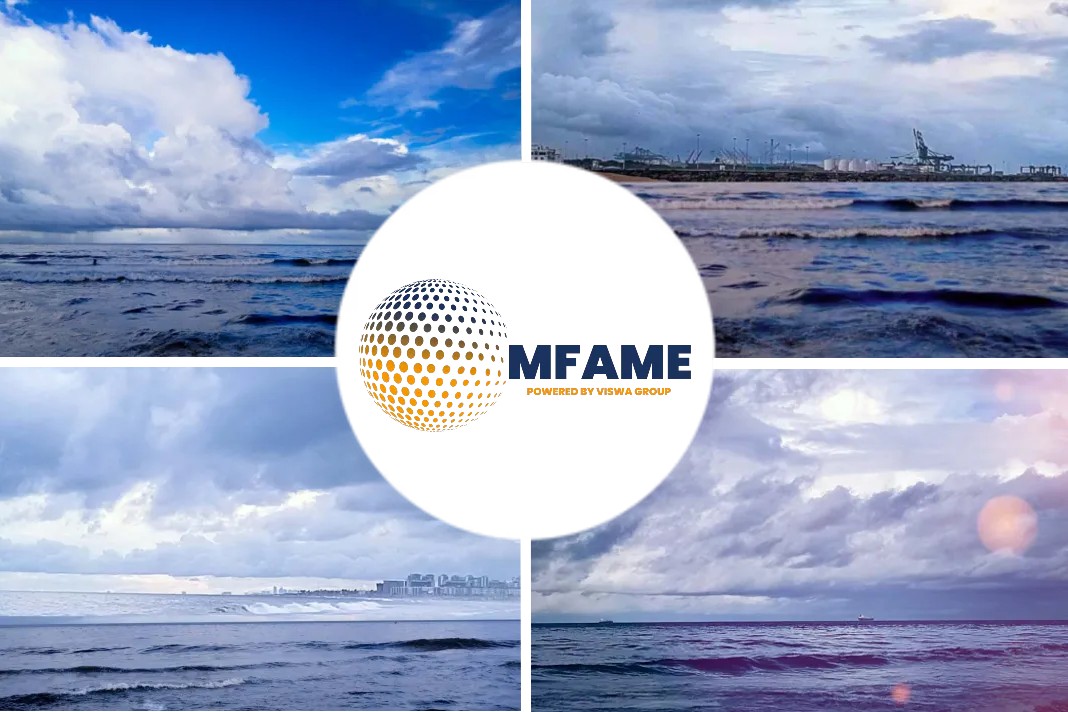With less than 6 months before the new rules on marine fuels come into force, more and more shipping companies are communicating how they intend to comply it, reports Value Maritime.
Spliethoff’s option to comply
While most shipping companies will simply switch to low sulphur fuel, Spliethoff opts for scrubbers claiming that is a better alternative for the environment.
Why scrubbers?
The Dutch shipping company Spliethoff opts for scrubbers because:
- Spliethoff says low sulphur fuels will lead to increased overall CO2 emissions as the production of refined fuels requires more energy than the production of the heavy fuel oil that can be burned using scrubbers.
- They also doubts if the refined low sulphur fuels will be readily available come 2020 and expressed concerns about the safety of the new fuels.
“As it is still not clear whether the different low sulphur fuel blends used around the world could be damaging for ship engines, scrubbers are also the safe solution,” the company states. Spliethoff has been using scrubbers since 2012 and calls scrubbers a “proven technology”.
“Extremely worrying” fuel safety
Dry bulk shipping association Intercargo recently also expressed concerns about the safety of the fuels. The association said it’s “extremely worrying” that the practical testing of new fuels and crew training is very limited and pushed to the end of the year.
Intercargo warned that this situation creates significant safety implications for the operation of ships, that could eventually threaten the safety of seafarers, ships, and cargoes, as well as the marine environment.
Fuel price uncertainty a reason for scrubber?
Another reason Spliethoff is opting for scrubbers is the uncertainty regarding the prices of the low sulphur fuels.
- Scrubbers require a predictable one-off investment, while the prices of low sulphur fuels are yet unknown.
- It is estimated that the low sulphur fuel will be about 50 to 60% more expensive than heavy fuel oil.
- The expected drop in heavy fuel oil prices post 2020 and the price difference will be even more substantial.
Best and cost-efficient way
The investment in scrubbers will also bring costs to Spliethoff and its customers, but according to the shipping company scrubbers provide the best of both worlds: “The best solution for the environment in a safe and cost-efficient way.”
Cost share with customers
The company has not published any details about the extra costs it expects to charge its customers.
So far, Zeamarine is the only company to give clarity on the extra costs stemming from the new regulation. Effective 1 September 2019, Zeamarine will charge an extra USD 35 per freight ton to compensate for the higher fuel costs of its liner services.
What is the Scrubber debate?
Not everyone agrees with Spliethoff that scrubbers are the best solution for the environment.
There has been a fierce debate in the past 12 months, about the harmfulness of the scrubbers’:
- Wash water which contains sulphur that has been removed from the exhaust gasses and is discharged into the sea.
- European Commission, national governments, port authorities and other shipping companies feel scrubbers simply move the sulphur emissions from the air to the sea.
Scientific reports to support scrubbers
Citing scientific reports, scrubber advocate Clean Shipping Alliance, of which Spliethoff is a member, says that statement is false.
A study from CSA member Carnival Cruises found that the scrubber wash water from its vessels complied with industrial discharge legislation like the German Waste Water Ordinance, the EU Industrial Emissions Directive and the EU Surface Water Standards Directive.
Wash water poses threat?
Research for the Joint Research Centre of the EU and the OECD, however, found that the discharge of the sulphuric wash water poses a threat in busy shipping regions. In a report, it concluded that in busy shipping lanes the discharge of scrubbers wash water can accelerate the acidification of the ocean with a pace that is twice as high as the ocean acidification caused by CO2.
Because of the possible negative impact on the environment, countries like China and Singapore have prohibited vessels from discharging scrubber wash water in their territorial waters.
Did you subscribe to our daily newsletter?
It’s Free! Click here to Subscribe!
Source: Value Maritime

























